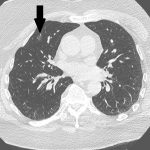ACR CONVERGENCE 2020—Part of a scientific session on Monday, Nov. 9, focused on the use of various rheumatology therapies as repurposed treatments for the atypical cytokine storm syndrome that occurs in some people with COVID-19. Roberto Caricchio, MD, chief of the Division of Rheumatology at Lewis Katz School of Medicine, Temple University, Philadelphia, spoke to ACR colleagues about the characteristics of this syndrome, the rationale behind therapeutic use of these treatments and what has been learned.
Of the numerous clinical trials now taking place for COVID-19, a significant subset are for therapies sometimes used in rheumatology: small-molecule, disease-modifying anti-rheumatic drugs, such as baricitinib; and biologics, such as those blocking interleukin 1 (IL-1) and IL-6. For the most part, these therapies have been selected not for antiviral properties, but for their potential capacity to calm cytokine storm syndrome secondary to COVID-19. Dr. Caricchio explained, “The rationale for using [them] is solid because of the demonstrations we have seen many times over the past several months of an overly exuberant immune response.”
Dr. Caricchio is the principal investigator for several clinical trials related to COVID-19, including one sponsored by Eli Lilly for the JAK1/JAK2 inhibitor baricitinib and a trial with Swedish Orphan Biovitrum studying the anti-interferon gamma antibody emapalumab and the IL-1 antagonist anakinra. He and other colleagues with expertise in cytokine storm published a paper in early April regarding its immunopathology in the context of COVID-19.1 “We thought that—given the data from Europe and from China—there was certainly a hyperinflammatory response ongoing,” he related.
Cytokine Storm Differences
Cytokine storm represents a family of related syndromes with some overlapping pathophysiological signals and some important differences. It can occur due to infectious diseases, such as COVID-19 or influenza; malignancy; chimeric antigen receptor T cell therapy (CAR-T therapy), or from such genetic syndromes as hemophagocytic lymphohistiocytosis (HLH). It can also occur from macrophage activation syndrome (MAS), as a sequela of systemic juvenile idiopathic arthritis or other autoimmune disease. In all cases, uncontrolled immune activation leads to excessive release of multiple cytokines, leading to hyperinflammation and severe multi-organ disease.1
Because of differences in the somewhat atypical cytokine storm seen in COVID-19, Dr. Caricchio et al. proposed a new set of predictive criteria for cytokine storm somewhat distinctive from the criteria that have been used in HLH and MAS.2 Unlike in some other forms, cytokine storm secondary to COVID-19 usually manifests with lymphopenia only—and not with two or more cytopenias. Unlike these other forms, organomegaly is uncommon, and in fact the syndrome can cause shrunken lymph nodes and spleen.



